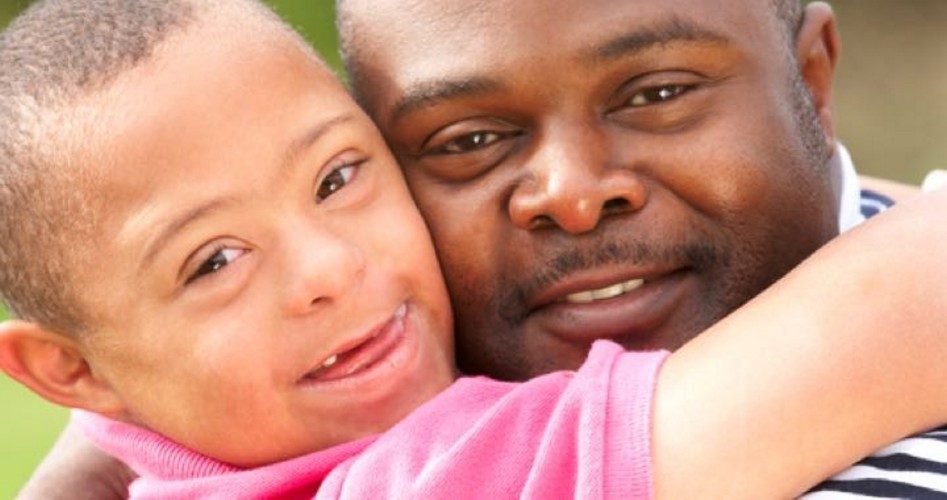
The practice of aborting unborn babies diagnosed with birth defects has virtually eliminated Down syndrome in Iceland, and sadly, Denmark is close behind.
“In 2016, there were four children born in Denmark with Down syndrome after prenatal diagnosis and there were 20 children born with Down syndrome diagnosed after birth,” Danish Ambassador Carsten Søndergaard told an Irish committee during a debate on Ireland’s legalization of abortion.
Søndergaard denies that the country has any sort of official policy to eradicate Down syndrome, but admitted that pregnant mothers are certainly not discouraged from choosing to end their pregnancies upon receiving a diagnosis of prenatal Down syndrome. “In general it should be noted that it is not the policy of the Danish health authorities to eradicate Down’s syndrome, but it is their duty to provide the pregnant woman with the best possible basis for her to make her own decision about her pregnancy,” he continued.
Though Denmark’s abortion laws are stricter than those of the United States in that they generally allow abortions only within the first 12 weeks of pregnancy, the country permits later abortions of pregnancies in which the child is believed to have a birth defect, including Down syndrome. As a result, in 2014 alone, 98 percent of babies who tested positive for Down syndrome were aborted.
Denmark is not alone in this trend, as Down syndrome babies have been virtually eradicated in Iceland through abortion.
In France, 77 percent of women who receive a prenatal diagnosis of Down syndrome terminate their pregnancies, according to ABC News. The Daily Wire reports that France is so supportive of pregnant mothers’ decision to abort their babies diagnosed with Down syndrome that it even banned a commercial in honor of World Down Syndrome Day from airing in the country because it had the potential to upset mothers who previously aborted their Down syndrome children.
In the United States, 67 percent of pregnant women terminate their pregnancies once they learn their unborn baby will likely have Down syndrome.
In 2009, Dr. Brian Skotko, a pediatric geneticist at Children’s Hospital in Boston, stated that research shows an estimated 92 percent of women choose to terminate their pregnancies after receiving a prenatal diagnosis of Down syndrome.
Unfortunately, parents whose unborn babies were diagnosed with Down syndrome report feeling pressured by their healthcare providers to consider abortion.
Eric Scheidler, executive director of Pro-Life Action League, contends that prenatal testing for conditions such as Down syndrome is often used as a means to point parents in a certain direction rather than enabling them to prepare for caring for a child with potential birth defects. “I think that kind of [prenatal] testing is appropriate for parents who want it, but it should be used in order to prepare for caring for a child,” Scheidler said.
“Parents are being urged to abort their children,” he said. “There’s really not a fair presenting of options being offered to parents.”
Dr. Skotko made a similar observation. “I am concerned about mothers making that informed decision,” he said. “Are they making it on facts and up-to-date information? Research suggests not, and that mothers get inaccurate, incomplete and sometimes offensive information.”
Critics of this practice are calling it modern-day eugenics. “This is not a medical advancement,” said Penny Nance, president and CEO of Concerned Women for America. “This is eugenics and barbarianism at best. These individuals have no less worth than anyone else.”
Fortunately, several states in America are fighting to maintain some semblance of morality in an otherwise immoral practice. According to LifeNews, the international movement toward eliminating Down syndrome through abortion has prompted several U.S. states to pass laws that prohibit the practice of aborting unborn babies with disabilities. North Dakota and Indiana have both passed laws prohibiting abortions based on the unborn child’s disability. Ohio is considering similar legislation.
Poland is also considering a bill that would prohibit discrimination against fetuses with disabilities, LifeNews reports.
Some contend that women who choose to terminate their pregnancies have been misled by myths surrounding Down syndrome. Scheidler states, “Having gotten to know several people with Down syndrome in my life, I am horrified by the thought that Iceland, and Western society in general, is rejecting these children.”
According to a 2011 study in the Journal of American Medical Genetics, 99 percent of parents who have a child with Down syndrome report being happy with them.
And the rates of divorce for families with a Down syndrome child are actually lower than those without any disabled children, as well as those with children who have other disabilities, a 2008 Vanderbilt University study shows.




